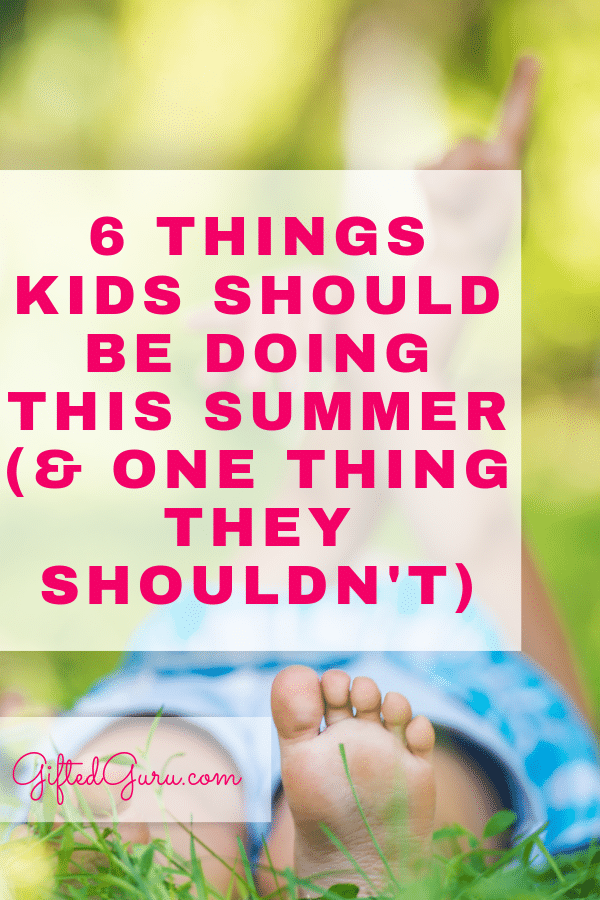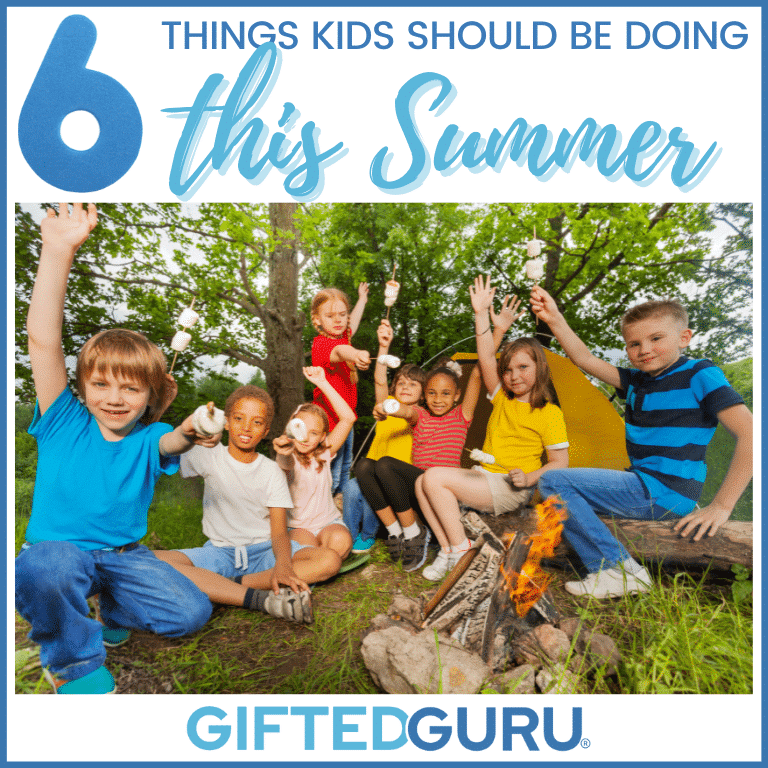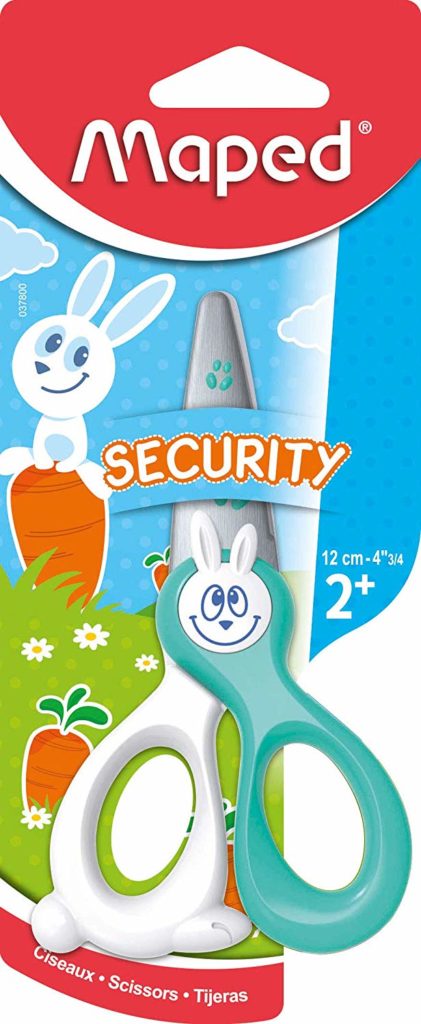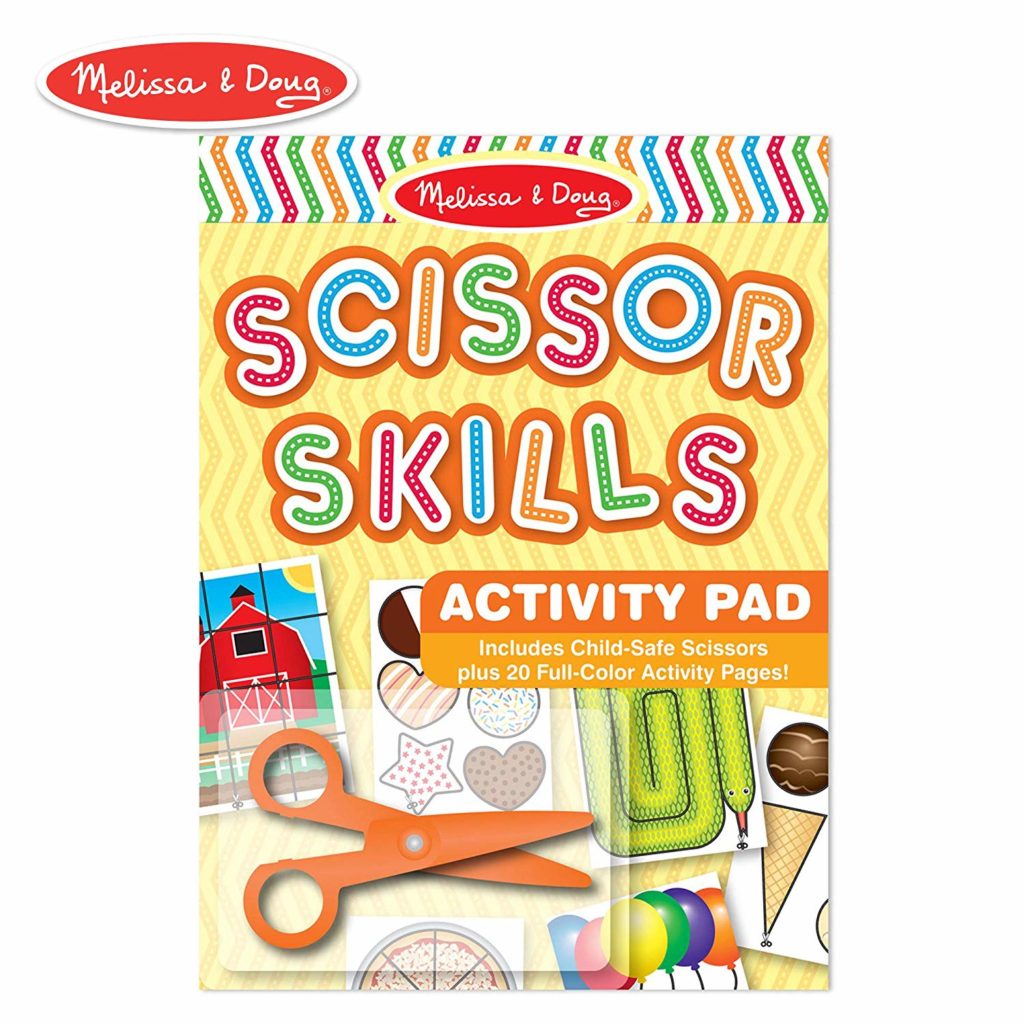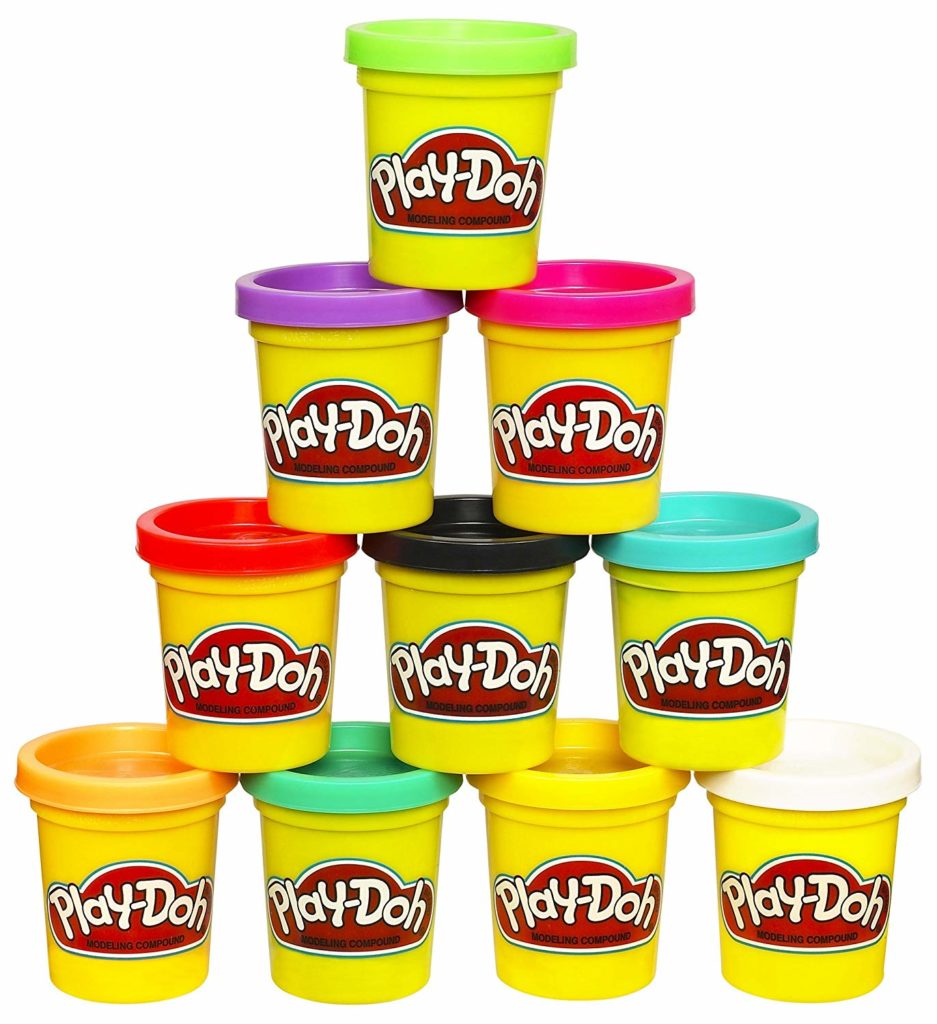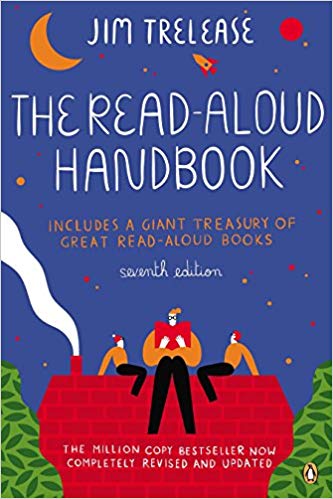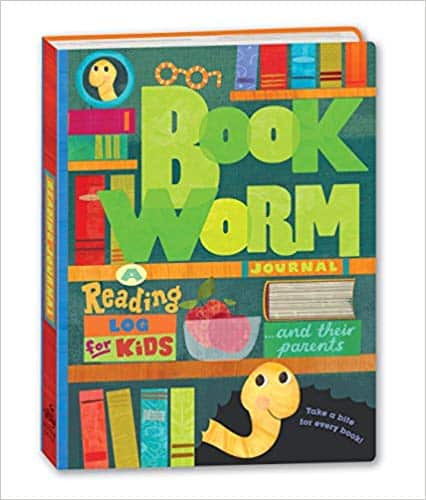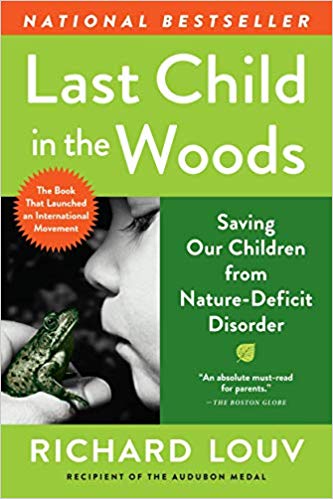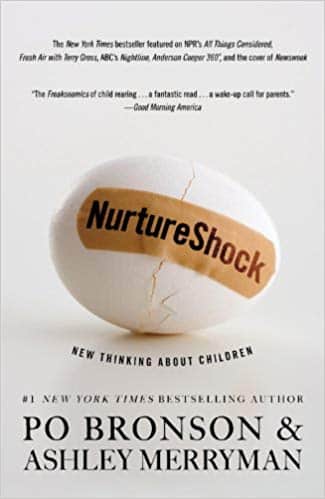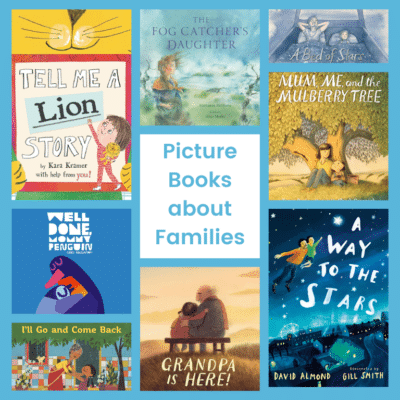“Summer afternoon—summer afternoon; to me those have always been the two most beautiful words in the English language.” – Henry James
Well, Henry clearly did not live in North Texas where I do, but summer is magical, even in when it’s hot.
There are some things kids should do to help make summer magical (and one thing they shouldn’t), and I’m sharing six of them with you today.
1. Cut things
We’re seeing more and more children coming to school without basic cutting skills. You know why this is problem?
Because reading is a fine motor skill.
This isn’t an issue just for Kindergarteners.
Get a good pair of scissors for your child and let them cut.
These Maped brand are my favorites (they’re only $3, and they cut both left- and right-handed).
You can get scissor activity books like this one, but cutting up junk mail works great, too!
Have kids cut things other than paper, like playdoh.
You can buy it or make your own (I love this recipe).
2. Read
You know how I feel about this because I’ve written about it in articles like these:
- Why Children Stop Reading and What to do about It
- 11 Tips to Get Kids to Read Good Books
- 8 Benefits of Reading Classic Literature
- The Relevance of Reading
Here is the thing: it can’t be for a task. It can’t feel like a job.
It needs to feel like the pleasure – the tremendous pleasure – it is.
I would ask that you consider reading aloud this summer (and always, to be honest) with your children.
Let me get you started.
First, grab Jim Trelease’s The Read-Aloud Handbook.
Add Megan Cox Gurdon’s The Enchanted Hour: The Miraculous Power of Reading Aloud in the Age of Distraction if you need some persuading of why this is so mission critical.
Then, make it fun and lastingly meaningful by starting a family book journal. You can buy one like this, or you can make one from a simple composition or spiral notebook.
3. Listen
One of the great skills of school success is listening. Perhaps not shockingly, it’s a skill that is often in need of improvement.
Consider working with kids on how to show someone they are listening (eye contact, nodding, avoiding gestures of boredom, etc.).
At family dinners and other times, let kids practice by having them listen and respond appropriately.
Also, allow kids to talk while adults listen. Debrief so the kids not only identify how they showed they were listening, but also how they knew that others were listening to them.
Both are necessary for developing listening skills.
Audiobooks are another good way to do this. I loved this episode of the What Should I Read Next? podcast that featured a child talking about great audiobooks.
4. Talk
Now, gifted kids usually excel at talking, yet it’s not always the kind of talking skills that actually, you know, help things.
Vacations are a great time to practice these talking skills:
- Sharing an idea succinctly (yes, it’s possible)
- Waiting until someone is ready to listen before speaking (also possible)
- Avoiding sounding impatient or exasperated (perhaps possible)
Kids who develop these skills will have better experiences in school, not only in conversations with teachers, but also with peers.
When we can talk with each other well, we build relationships, and relationships make even less-than-ideal situations bearable.
5. Go Outside
Nature is necessary. Nature is necessary.
I think twice is enough, so I’ll just give some details.
I recently saw a child who had on a tshirt that said, “I went outside once. The graphics were okay.”
It broke my heart. I admit it: I felt judgmental towards his dad, whom he was with. Even if it were a joke, it’s not funny.
In the wording of the National Wildlife Foundation, “In the last two decades, childhood has moved indoors.”
Studies show that the average American child spends between 4 and 7 minutes a day in unstructured outdoor play per day, yet they find time for more than seven hours a day of screen time.
The WWF shares these research findings on the benefits of kids being outside:
- Increased fitness levels (needed because of the rapid rise in childhood obesity)
- Improved distance vision
- Increased levels of Vitamin D
- Lowering of ADHD symptoms
Childmind shares this great article on ideas for getting kids out into nature, if you’re looking for suggestions.
Read Richard Louv’s Last Child in the Woods: Saving our Children from Nature-Deficit Disorder for more (read while you’re sitting outside, of course).
6. Care for Something
Caring for something, be it a pet or a plant, develops executive functioning skills that virtually all students need help with.
Having something dependent upon you builds dependability and consistency.
This summer, I added this beautiful Pilea peperomioides to my plant family, and I am deriving tremendous joy from caring for it and watching it reward me with new leaves.
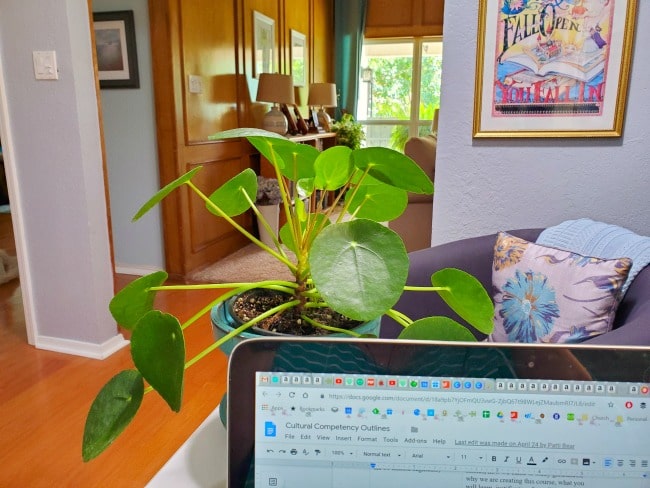
Plants are a great place to start, and it doesn’t have to be an enormous garden. Try a plant like a pothos that is easy to care for and can be easily propagated.
Growing clippings of them in water and then making new plants out of those clippings is incredibly satisfying.
While you can use a regular glass or jar, if kids get really into it, you can find propagation stations that appeal to budding horticulturists and parents alike.

If you decide to allow a child a pet, consider carefully the child’s ability to care for it well. It won’t be helpful if the pet does not thrive.
Consider starting with a fish or other small pet, like a gerbil. The Wisconsin Humane Society has a nice article on choosing a pet for your family.
Make sure the pet is truly the child’s responsibility. It defeats the purpose if the parents take over.
Summer is a good time to begin these kinds of projects because the children are home more and can practice their skills before school busy-ness takes hold again.
The one thing kids shouldn’t do this summer?
Please, please, I’m begging you, limit screen time.
Students allowed unfettered access to screens all summer are at a perilous disadvantage.
For some students, this limitation needs to be drastic because they’ve been allowed free rein. Why is it a problem?
It’s hard to know where to begin, but here are some problems (I’ve linked to studies so you don’t have to take my word for it):
- It’s hard to find Algebra interesting when you’ve hijacked the reward center of your brain with too much screen time.
- You become less empathetic.
- It’s bad for their eyes in a way reading without enough light only wishes it could be.
- It is not a good idea to allow kids to use anything, including screens, as blackmail with poor behavior as the threat. Too many parents feel that they will can’t say no to screens because then what would the kids do? (no study for this one: read the whole book Nurture Shock to find out why poor parenting is ruining the world)
My argument would be that that is not the parents’ responsibility to keep kinds occupied; it is the children’s.
Parents are not responsible for entertaining children.
They are responsible for making sure kids have access to things that they can use to entertain themselves. Luckily, that’s easy: boxes, dirt, books, magnifying glasses, and the like are perfect.
When parents take over the child’s job of entertaining oneself, we stunt emotional growth and maturation, we rob them of needed skill development, and we fail to allow them to discover their own interests and passions.
Wrapping Up:
Summer is a wonderful time, and infusing even one or two of these ideas into it will make it even more wonderful.
You May Also Like:

